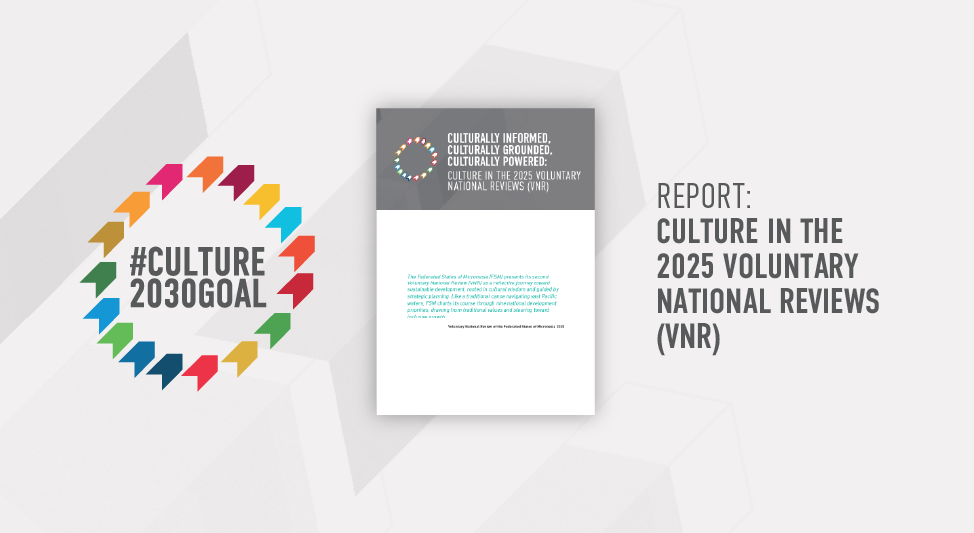
All countries presenting Voluntary National Reviews this year have underlined the place of culture, as a goal in itself, and as an enabler of wider progress. In doing so, they have provided further evidence of the core argument of the Culture2030Goal campaign – that a culture goal is not just desirable, but eminently feasible.
The Culture2030Goal campaign has released the 2025 edition of its regular reviews of the place of culture in Voluntary National Reviews of implementation of the Sustainable Development Goals.
Voluntary National Reviews (VNRs) are an opportunity for participating governments to talk about their approach to development, highlighting the full range of actions they are taking, as well as to explain more about their priorities going forwards.
Reviews are presented at the UN High-Level Political Forum, but are also an opportunity to mobilise and engage stakeholders nationally. Reflecting the 2030 Agenda, VNRs are also intended to be cross-cutting, addressing all pillars of development.
They are therefore valuable as an indicator of what national governments see as being important in the drive to ensure sustainable development for all.
In the light of this, the presence of culture in every single one of the 35 reviews presented this year is an important signal.
So are the wide range of countries, from very different geographies and levels of economic wealth that are taking a holistic and comprehensive approach to culture, in line with the Culture Goal proposed by the Culture2030Goal campaign.
Special mention goes to the Federated States of Micronesia, Finland, Malta, Papua New Guinea, Qatar, Suriname, the Seychelles, all of which offer a model of how to integrate culture into development.
Furthermore, we see a similar pattern of references to culture as in 2024, underlining that this recognition of culture is a constant.
We invite culture advocates and governments alike to draw on the evidence from this report – as well as those from previous editions – in order both to inspire national sustainable development strategies, and strengthen the case for a culture goal as a means of making this good practice universal.